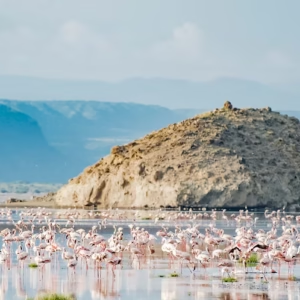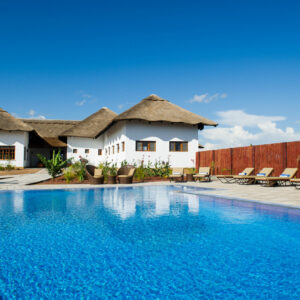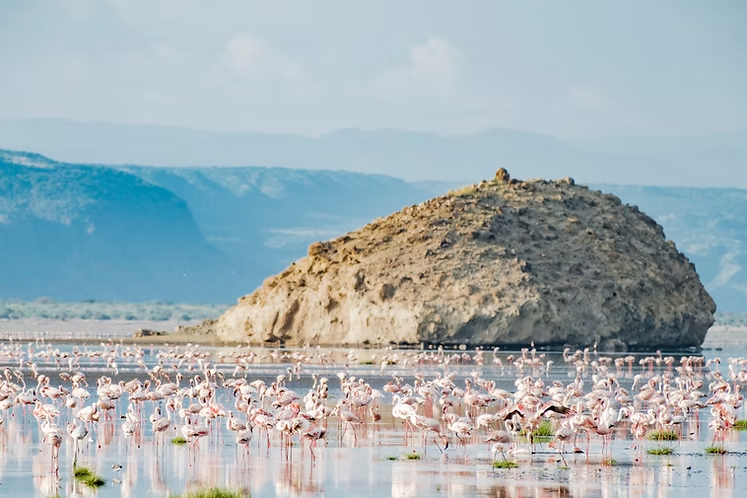Medical Check-Up before climbing Kilimanjaro.
Before starting a Kilimanjaro climb, it is crucial to have a complete physical assessment done by a medical specialist. This examination aims to identify any underlying health issues that might jeopardize your safety during the trek, as well as to ascertain whether you are physically fit enough for the challenge. Conquering Kilimanjaro: Is a Medical Checkup Your Summit Pass? Scaling Kilimanjaro, the “Roof of Africa,” is a dream for many adventurers. But before lacing up your boots and embarking on this epic journey, one crucial question arises: Should you have a medical checkup? The answer is a resounding yes, and here’s why:
Altitude’s Not Your Friend:
While Kilimanjaro may not be Everest, its altitude, reaching 5,895 meters (19,341 feet), still packs a punch. Thin air reduces oxygen intake, putting stress on your heart, lungs, and brain. A checkup identifies any underlying conditions that could be exacerbated by altitude, like heart disease, asthma, or blood pressure issues.
Know Your Fitness:
This isn’t a walk in the park. Months of dedicated training are essential, but a checkup goes beyond that. It assesses your cardiovascular health, muscular strength, and overall fitness level, giving you insights to train effectively and safely, reducing the risk of injuries or exhaustion on the climb.
Medications Matter:
Discuss any medications you take with your doctor. Some may interact poorly with altitude or be unsuitable for the trek. Your doctor can advise on alternatives or adjustments to ensure your safety and well-being throughout the climb.
Vaccinations are Vital:
Kilimanjaro lies in a region with specific vaccination requirements. Your doctor can ensure you’re up-to-date on necessary vaccines like yellow fever, rabies, and tetanus, protecting you from preventable illnesses.
Peace of Mind:
Knowing you’re physically prepared for the challenge offers invaluable peace of mind. Medical Check-Up before climbing Kilimanjaro. A clean bill of health from your doctor boosts your confidence and allows you to focus on enjoying the adventure, not worrying about health concerns.
Early Detection:
Sometimes, underlying health issues might go unnoticed. A pre-climb checkup could uncover potential problems early, allowing for treatment and management before they impact your climb or overall health.
Remember: While highly recommended, a pre-climb checkup doesn’t guarantee smooth sailing. Medical Check Up Before Climbing Mount Kilimanjaro. However, it equips you with crucial knowledge, empowers you to make informed decisions, and significantly increases your chances of a safe and successful summit attempt.
Beyond the Checkup:
- Consult your outfitter: They can provide specific recommendations based on your chosen route and the time of year.
- Be honest with your doctor: Disclose any past medical conditions, injuries, or concerns.
- Pack smart: Bring essential medications, altitude sickness prevention meds, and first-aid supplies.
- Listen to your body: Ascend gradually, acclimatize properly, and don’t hesitate to seek help if you experience any health issues.
- With a thorough medical checkup and mindful preparation, you can turn your Kilimanjaro dream into a reality. Remember, conquering the mountain starts with conquering your health concerns. So, schedule that appointment, summit your health goals, and get ready to stand on top of Africa!
Should I have a medical checkup before climbing Kilimanjaro?
Yes, a pre-Kilimanjaro medical checkup is crucial. The strenuous altitude and physical demands of the climb require optimal health. A thorough examination ensures you’re fit for high-altitude conditions, reducing risks of altitude sickness and other health issues. Kilimanjaro Health Check – Health & Safety on Kilimanjaro. Prioritize your well-being to enhance the overall safety and enjoyment of your Kilimanjaro expedition.
Kilimanjaro fitness test
Maximum best time of 15 mins 30. This is a mile and a half run (2.4km), usually including only a very slight incline. However, we suggest you test yourself either on a treadmill at a gym, or by running 6 times around an athletics track.
What vaccines are needed for Kilimanjaro?
Commonly Recommended Vaccinations
- Yellow fever – 10 days before travel.
- Typhoid – 10 days before travel.
- Hepatitis A – 2 weeks before travel.
- Diphtheria – 3 months before travel.
High altitude trekking has its own set of risks
Before embarking on a trek up Mount Kilimanjaro it’s important to get a medical check from your family doctor. A basic check-up will ensure your fitness levels are adequate, and your overall health is up to the challenges of the mountain.
How to prevent altitude sickness on Kilimanjaro?
- Walk high, sleep low. It is best to gradually climb higher each day, then descend lower to sleep.
- Slow and steady. You need to keep your respiration rate low enough to maintain a normal conversation.
- Drink much more water than you think you need. Proper hydration helps acclimatisation dramatically.
- Diamox.








